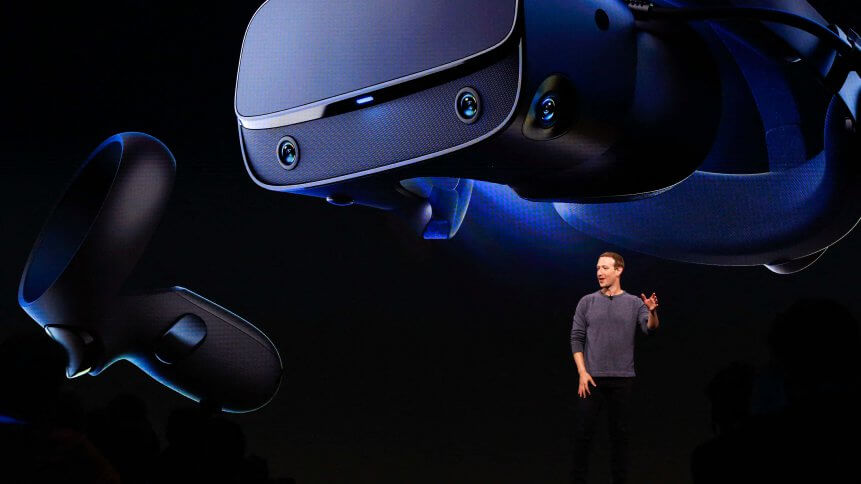Will Facebook’s ‘Metaverse’ be the next internet revolution?

- Facebook is betting big on the idea as it hopes to be viewed more as “a metaverse company” than a social network in future
- Enthusiasts foresee the idea to be extended further, allowing us to be transported to digital settings that feel real
- Facebook believes its users will eventually experience the social network not on a smartphone screen, but superimposed over the real world seen through AR glasses
Every now and then, within the tech world, new jargon appears out of nowhere — often ill-explained and overused. Few and far between, the terminology sticks — like the internet. Well, the next internet revolution is highly anticipated to be “the metaverse.” The tech company that has been talking the loudest about it lately is Facebook.
The term metaverse was first coined in Snow Crash, Neal Stephenson’s 1992 sci-fi novel. The term refers to a convergence of physical, augmented, and virtual reality in a shared, online space. Companies and products including Epic Games’ Fortnite, Roblox, and even Animal Crossing: New Horizons increasingly had metaverse-like elements. In fact, Epic Games CEO Tim Sweeney has been discussing his desire to contribute to a metaverse for many months now.
Is Facebook leading the internet revolution?
To put it into context, Facebook CEO Mark Zuckerberg told The Verge that: “I think over the next five years or so, in this next chapter of our company, I think we will effectively transition from people seeing us as primarily being a social media company to being a metaverse company.”
In short, Facebook believes its users will eventually experience the social network not on a smartphone screen but superimposed over the real world, and seen through AR-enabled glasses. More recently, the company has been exploring how to create a map of the real world so that this digital, social layer can be placed over it, with certain digital items anchored to certain physical places.
This means virtual meetings between avatars can happen within real-world spaces. Cameras on the glasses will detect and follow the user’s eyes movements. The idea of Facebook’s direction is far from new since it has been spoken and discussed for a while now. Even in January 2020, an influential essay by the venture capitalist Matthew Ball set out to identify key characteristics of a metaverse.
Among those characteristics: it has to span the physical and virtual worlds, contain a full-fledged economy, and offer “unprecedented interoperability” — users have to be able to take their avatars and in-world goods from one place in the metaverse to another, no matter who runs that particular part of it. Critically, no one company should run the metaverse — it will be an “embodied internet,” as Zuckerberg puts it, operated by many different players in a decentralized manner.
YOU MIGHT LIKE

Smart glasses mean business — but they’re a long way off
However, looking at the amount of investment placed by both tech giants and smaller players such as Roblox, Epic Games, and Niantic to create aspects of a metaverse, the concept now feels closer to reality. Perhaps now, having to come from a social direction might give Facebook an advantage.
Currently, Facebook runs Oculus, the virtual reality division of Facebook. The Oculus’ VR headsets — which Facebook spent US$2 billion on — are relatively limited in what they can do. Facebook’s hope is to improve the technology and as Zuckerberg puts it, the metaverse will only work if the hardware can provide the user a true sense of presence in the digital world.
To top it off, in Facebook’s recent earnings call Zuckerberg uttered the word “metaverse” 20 times, according to CNBC’s Steve Kovach. Zuckerberg explained that his company hopes to make money by selling digital goods within the metaverse. Advertising will also be a part of the business, perhaps triggered by things users rest their eyes upon. The company said in a July 26 blog post that it’s now creating a new product team inside its AR group, Facebook Reality Labs, dedicated to developing Facebook’s metaverse.
Essentially, Facebook’s role in all this is to sell its headsets as cheaply as possible and focus on making money through commerce and advertising within the metaverse itself. But perhaps Facebook’s most ominous threat is as a vast platform for misinformation and disinformation. So, it is easy to imagine a metaverse shaped by Facebook being rife with all the same civic hazards as its current platforms, in another form.









